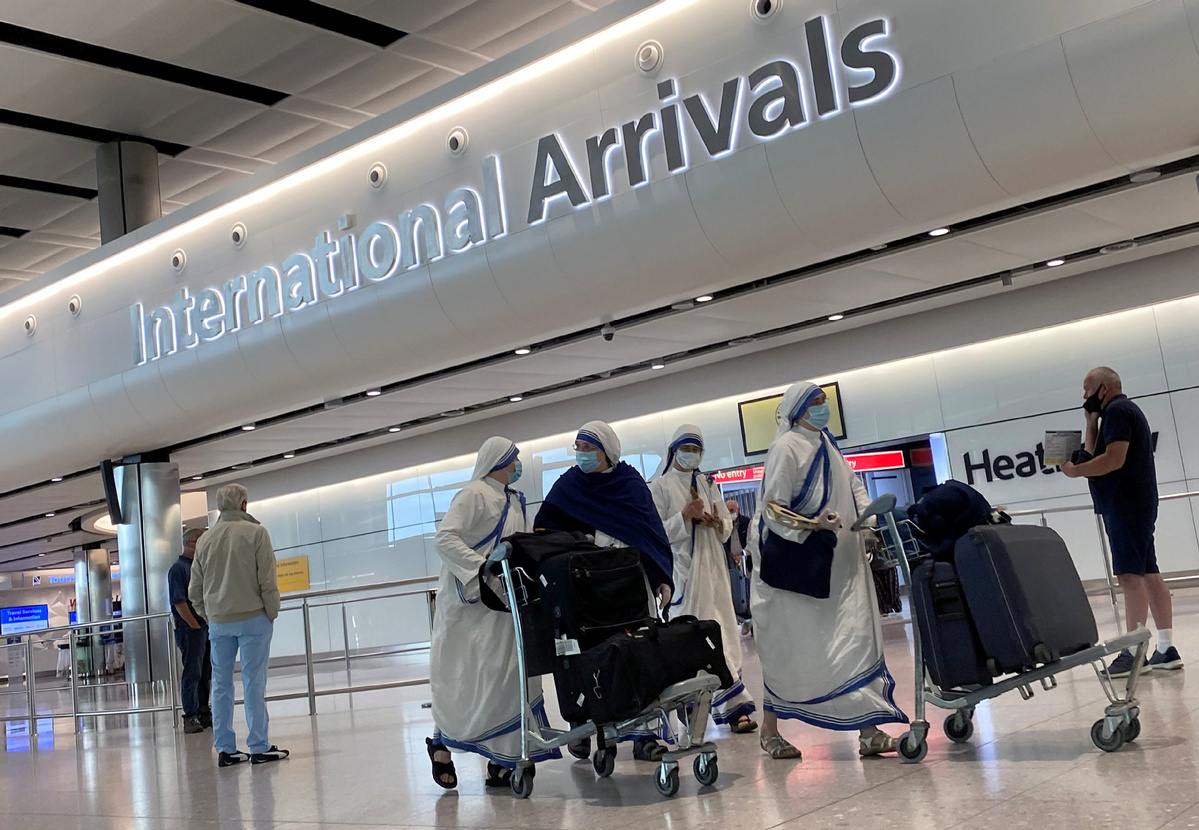Britain's quarantine rule splits opinion
By WANG MINGJIE | China Daily Global | Updated: 2020-06-09 15:01

Critics call anti-infection measure aimed at new arrivals a 'blunt tool'
The British government's controversial 14-day quarantine rule that came into effect on Monday has drawn a mixed response, with opponents describing it as an "incredibly blunt instrument" and a chaotic response to the novel coronavirus crisis, and supporters saying it is necessary to halt its spread.
The new quarantine rule calls for most arrivals in the United Kingdom, both citizens and people from other countries, to self-isolate for two weeks while remaining contactable throughout.
Failure to provide contact information could result in a fine of 100 pounds ($126), and people who breach the 14-day quarantine could face a penalty of 1,000 pounds.
Arrivals in the UK are also required to drive themselves to their destinations, if possible, and, once there, to avoid using public transport or taxis.
Medical professionals, road haulage and freight workers, and seasonal agricultural workers are exempt from the quarantine, along with people arriving from the Republic of Ireland, the Channel Islands, and the Isle of Man.
Ireland is also imposing a two-week quarantine on all arrivals.
Jonathan Kennedy, a senior lecturer in global public health at Queen Mary University of London, said: "There are so many exceptions to the new measures that they are almost meaningless. People who are in quarantine can travel on public transport from the airport to the place they are staying, and they are allowed to break their quarantine to go shopping. This is yet another example of the UK government's chaotic response to the crisis."
Kennedy said quarantine measures can be a sensible option in protecting public health if imposed at the right time and in the right way, such as with the quarantine imposed in Hubei province that appears to have been successful.
But he is not convinced the UK's measures will work.
"A quarantine on almost all incoming travelers is an incredibly blunt instrument, especially as several countries now seem to have the virus under control and therefore do not pose a risk," he said.
Steve McCabe, an associate professor at the Institute of Design and Economic Acceleration at Birmingham City University, said: "In any pandemic, it is essential to use quarantine on those who come into the country. It may be inconvenient but, as we're discovering, the impact of COVID-19 is having an utterly devastating impact in terms of deaths in the UK."
As with other rules introduced by the UK government, "trust in people doing the right thing and behaving sensibly remains paramount".
He believes the most important thing the UK can do is fully adopt its test and trace system, to monitor the spread of COVID-19, something that has helped elsewhere.
"Until this occurs, there is a sense that all other initiatives are merely being introduced as a way of assuaging concern and to pacify the media, which believes that insufficient measures were imposed at the outset of what has become a pandemic," McCabe said.
Last week, Home Secretary Priti Patel told members of Parliament that quarantine measures would not have been effective if introduced earlier in the pandemic because of the higher infection rates at the time. She said a quarantine will work now because both infection rates and number of deaths have flattened.
Patel said the quarantine will help the UK "protect our hard-won progress as we move in the right direction".
The quarantine for international arrivals is due to be reviewed in three weeks. The government said it will look at other options to increase travel safely, including arrangements known as "air bridges" or international travel corridors that would remove the need for self-isolation of new arrivals by opening up routes between countries with low rates of infection.
The UK tourism and hospitality industry, which has been hard hit by the lockdown that was imposed in March, has criticized the nation's quarantine requirement.
Joss Croft, chief executive officer of UKinbound, which represents almost 400 UK tourism businesses, said: "Imposing a 14-day quarantine on international arrivals into the UK is a huge blow to the UK's struggling tourism and hospitality industry-worth 28 billion pounds last year to the UK economy."
Croft said the inbound tourism industry has "earned very little revenue since March".
"Viable tourism businesses who rely wholly on inbound visitors will need to receive additional and extended financial support from the government if their businesses are to survive," Croft said.
























